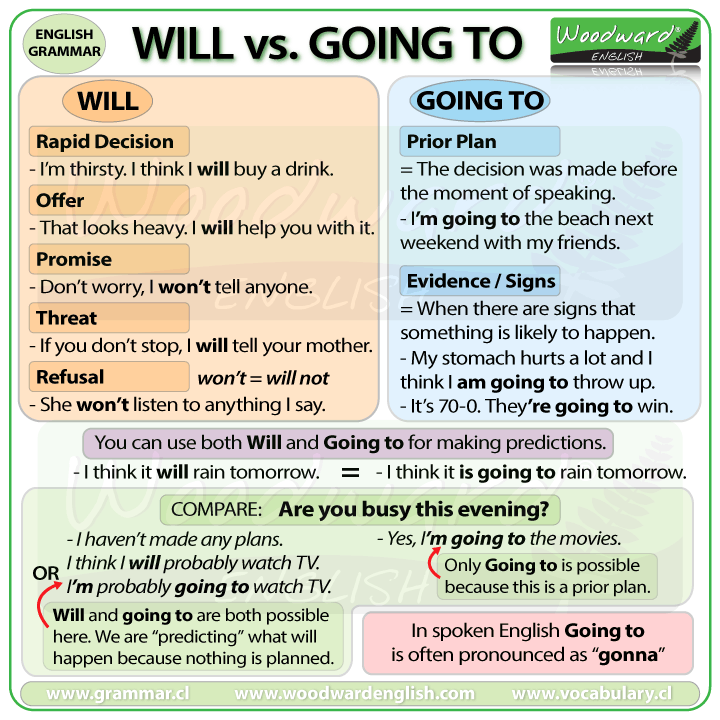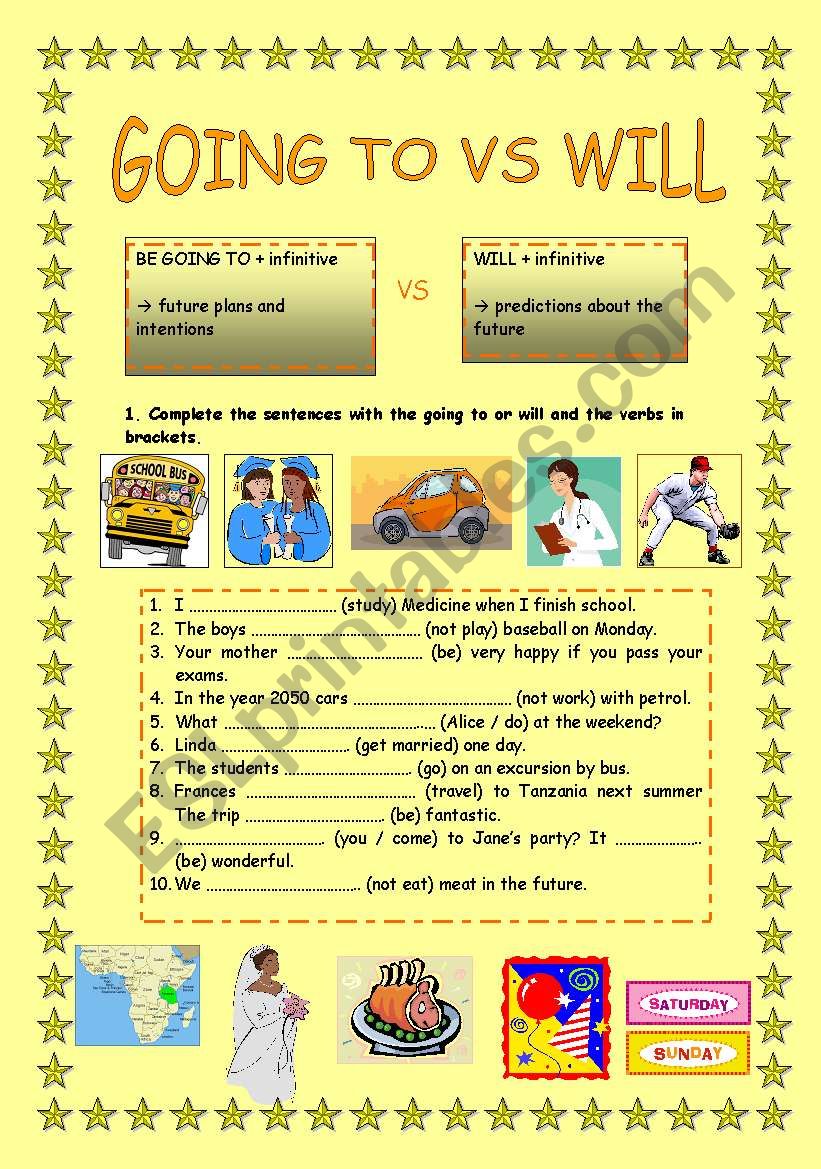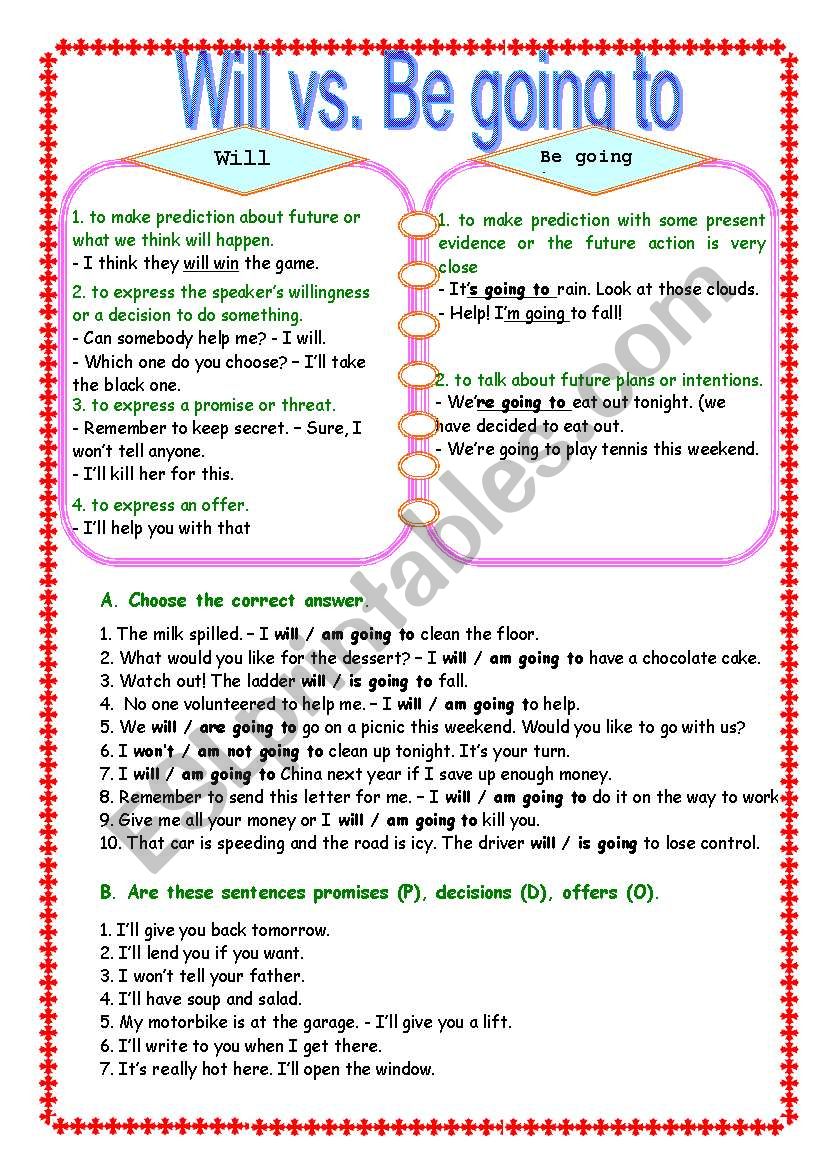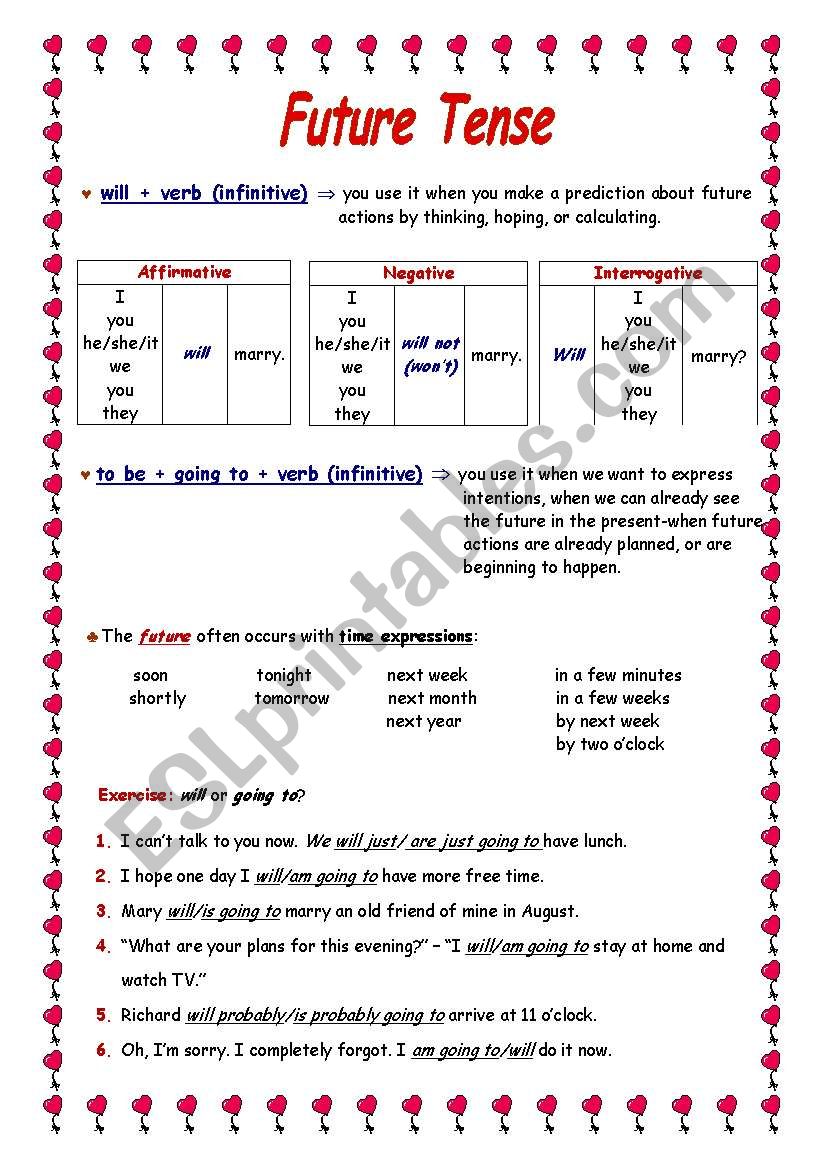Be Going To Vs Will

Study these basic forms and then use the referenced resources to practice these forms.
Be going to vs will. Auch für ereignisse die absehbar sind oder sich schon durch bestimmte anzeichen ankündigen benutzt du das going to future. The main difference between the two forms is that going to is used for plans and intentions made before the moment of speaking and the will to speak about the future at the moment of speaking. His class starts at 9am tomorrow. Before after.
I m going to the cinema tonight. Why is betty in a hurry. My train leaves at six tonight. First we use it for a timetabled event in the future like public transport or the start of a class.
What is the difference between be going to and will be going to and will. Die verwendung des will future. English grammar rules a very confusing concept is when to use will and when to use be going to when we refer the future. Select the correct form for each sentence.
Hierzu zählt zum beispiel das wetter welches von äußeren umständen abhängig ist. Second we use it after certain words when the sentence has a future meaning. Both refer to the future and there is a slight difference between the two though in most cases they can be used interchangeably with no difference in meaning. I am going to watch it.
Es sind also keine festen pläne oder absichten einer person. Question about english uk. Because she is going to meet her brother at the station at six. There is a good movie on tv tonight.
We use the present simple tense in two cases. We use will when we decide to do something at the time of speaking. I m going to go to the cinema tonight. Will is used to express future actions decided at the moment of speaking while going to describes future plans decided before the moment of speaking.
If either form is possible select will be going to. We use going to to talk about a planned activity for future. Im gegensatz zum going to future verwendest du das will future wenn du ereignisse in der zukunft ausdrücken möchtest auf die du keinen einfluss hast.


















